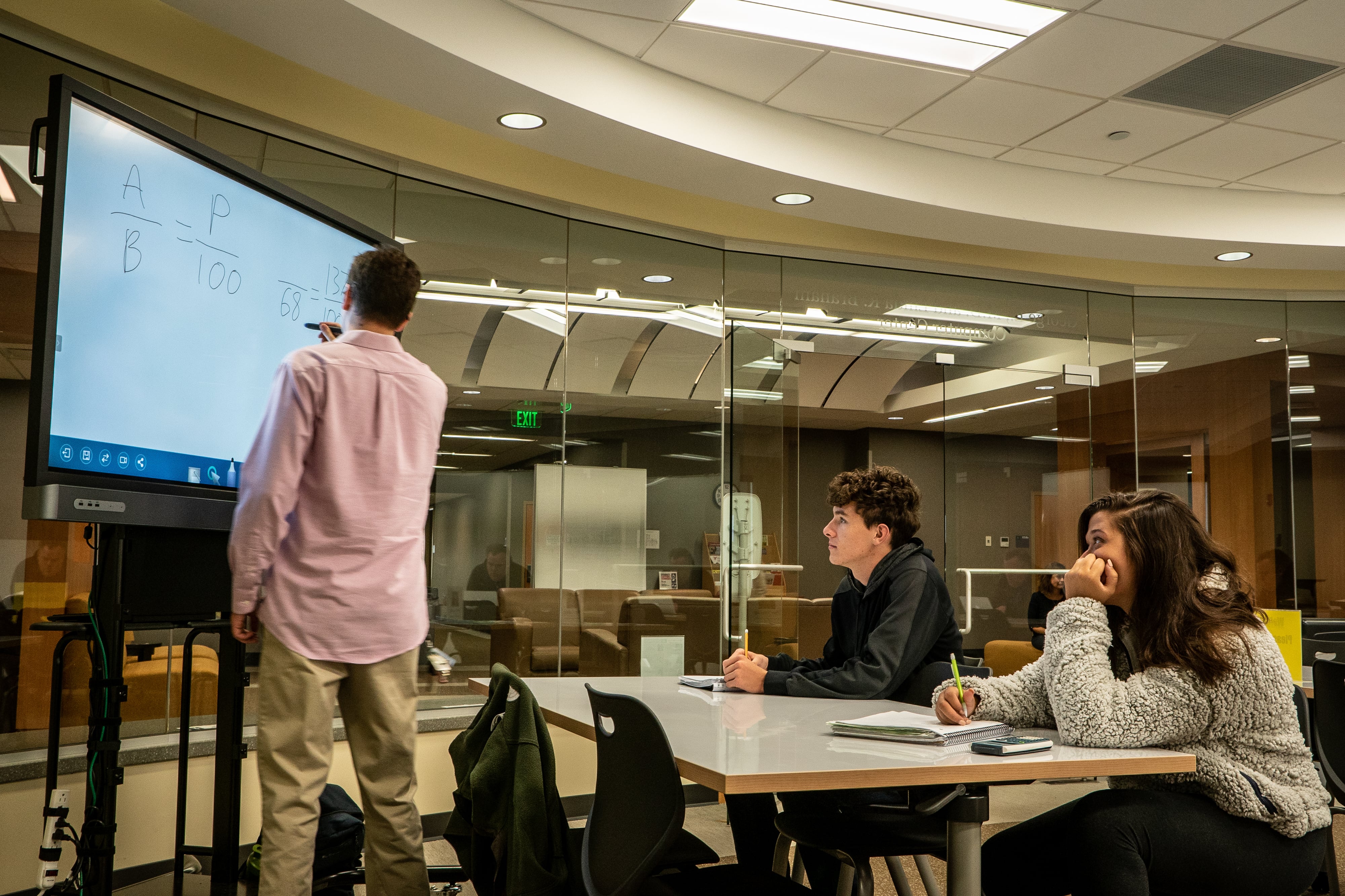Indiana student Jonathan Barrera-Herrera will complete his first college class at Ivy Tech in the next month before the fall semester starts — and get paid up to $300 to do it.
“It’s teaching me things I didn’t know, like the people that are at Ivy Tech, the classes, the credit hours, everything,” said Barrera-Herrera, a graduate of Jeffersonville High School.
But Barrera-Herrera is one of only a small group of eligible students who took advantage of this opportunity. While the program secured funding for 3,500 students, only about 300 enrolled, according to an Ivy Tech spokesperson.
The summer program was designed to assist students whose high school careers were derailed by the pandemic and help them chart a path toward higher education. Ivy Tech Community College, the Indiana Department of Education, and the Indiana Commission for Higher Education partnered to launch the program, made possible by federal COVID relief money.
Low college enrollment is of particular concern in Indiana, where the percentage of high school graduates continuing to college hit an 11-year low in 2019 at 59%. While pandemic-era figures aren’t yet available, a statewide decline in college financial aid applications indicates fewer students may have pursued higher education this year.
While fewer students participated in the Ivy Tech program than anticipated, Indiana Department of Education spokesperson Holly Lawson said the department sees each enrolled student as a success. She said the department will continue to monitor partnerships to make sure future programs have the greatest impact on students.
“Every student enrolled is one more student who is closer to earning a postsecondary credential,” Lawson said via email.
Enrollment fell short of the goal because it was tricky to gauge interest in the program, especially since it launched at the end of May and had a short recruitment window, said Ivy Tech spokesperson Jeff Fanter. More than 1,000 students expressed interest, Fanter said, and he hopes those who didn’t enroll will still consider attending Ivy Tech this fall.
Students in the summer program will go through three steps: A knowledge assessment, an intro course, and finally, enrolling at Ivy Tech. They will receive a $100 incentive for each step they complete.
The four-week intro course covers the basics of Ivy Tech, like how to navigate online learning platforms, select a major, and schedule classes. The program offers virtual and in-person learning options.
Psychology professor Mary Springer teaches the program’s intro course at Ivy Tech’s Sellersburg campus near Louisville, Kentucky. She said she hopes the program will help students get into the mindset that they can be successful at Ivy Tech.
“I think it can give them insight and some motivation for attending college and being successful in college,” Springer said. “Whether it’s the personality exploration or the career exploration or whatever it might be, then maybe we get a light bulb.”
A few years ago, the Sellersburg campus launched a similar incentive program that rewarded students with gift cards for meeting academic goals, and it faced difficulties recruiting students and encouraging them to complete the program, Springer said.
But it all depends on how you measure success — quantity, or quality. While many students didn’t finish, she said several attendees still gained skills that helped them in college.
“There were some really dynamic students that came out of it,” she said.






